





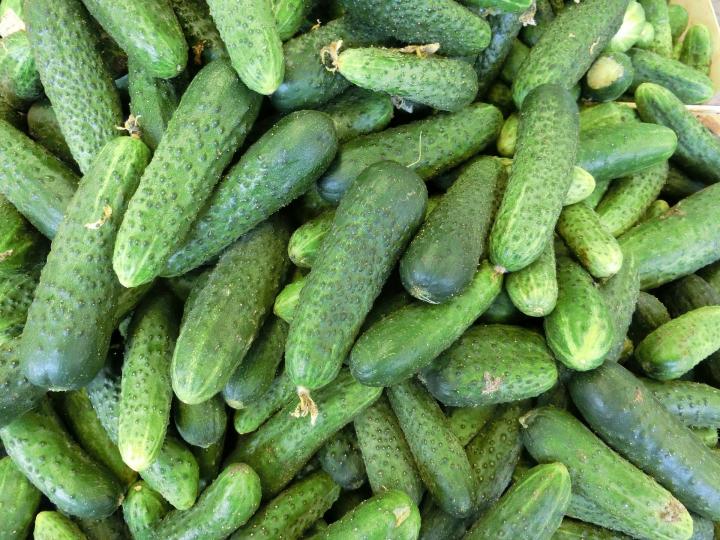
How healthy are cucumbers? Cucumbers are much more versatile than you might think, so here are tips for cooking with cucumbers, cucumber health benefits, and natural remedies with cucumbers.
Close relatives of the squashes, melons, and gourds (the Cucurbitaceae), cucumbers originated in northern India around 4,000 years ago. After surges and dips in popularity, they have risen to become the fourth most-cultivated vegetable in the world. They come in an astonishing variety of shapes, sizes, colors, textures, and flavors. In fact, some scientists have even created heart-shaped cucumbers! You can also find out how to create cucumbers of all colors here.
These mild-flavored fruits come into their own in midsummer, adding crunch to salads and snacks, delivering zing as pickles. But they’re also versatile: You can juice or blend whole fruits to use as the base for cooling summer beverages, dips, and cold soups. Some folks freeze them plain or in brines. Others even roast or grill them. (Check out Julia Child’s recipe for baked cucumbers.) Check out our pickling articles here.
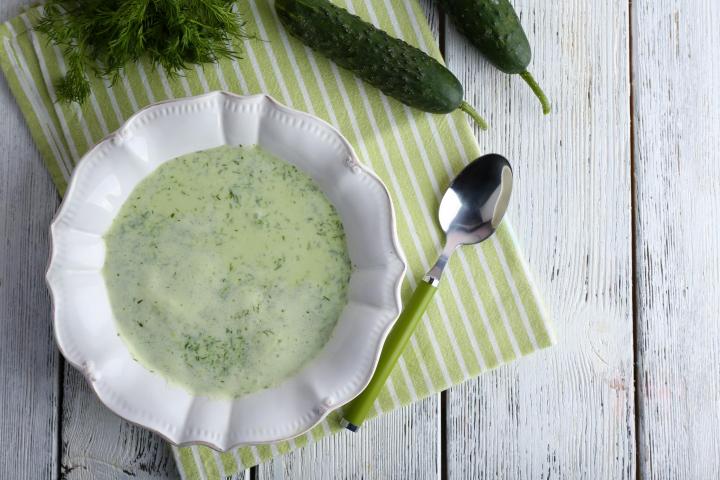
In terms of conventional nutrients (carbohydrates, proteins, fats, vitamins, minerals), the cucumber doesn’t rank among the vegetable superpowers. But eat the skin if you have young, unsprayed, unwaxed fruit, which contains most of a cucumber’s fiber and the lion’s share of its nutrients and phytocompounds.
Historical records reveal that in traditional cultures, cucumbers (not only the fruits, but also the seeds, leaves, stems and flowers) were valued more as medicine than as food, used in some form to treat nearly every malady of body or mind.
A large percentage of our modern drugs came initially from plants. One reason many researchers around the world have intensified their investigations of the health-promoting properties of many traditional medicinal plants, including cucumbers, is that in most cases, people can consume them as food or simple extracts for long periods without adverse effects.
It’s no wonder then that the cucumber has come under intense investigation in modern laboratories for its potential to prevent or treat a wide variety of illnesses.
Researchers have discovered that the plant contains numerous bioactive phytocompounds, variously described as anti-cancer, anti-inflammatory, antioxidant, antidiabetic, antibacterial, antifungal, pain-killing, wound-healing, and laxative. Three classes of phytocompounds under study include cucurbitacins, lignans, and flavonoids (such as finestin).
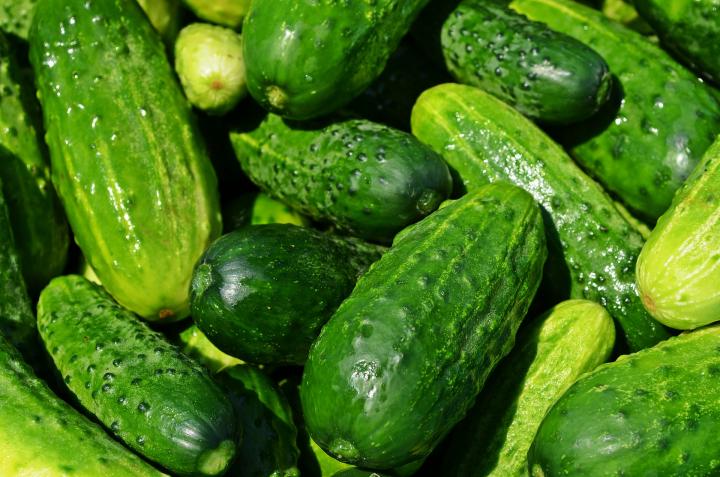
Researchers suggest that alone or synergistically, cucumber phytocompounds may one day help prevent or heal many types of cancer, cardiovascular diseases, bowel diseases, diabetes, and skin disorders, and speed wound healing.
It’s important to note that most of the research to date on the potential health benefits of cucumbers has been carried out in laboratory studies (designed to discover which bioactive compounds are present in cucumber fruits, leaves, stems, seeds, and flowers, and in what concentrations), or in animal studies.
Even the most promising research reports conclude with the caveat that more studies are needed before deciding which plant compounds in which formulation in cucumbers might prove useful in preventing or treating a specific condition in humans.
The phrase first appeared in a comedic poem by John Gay (1685-1732), a simile suggesting its renown as a cooling agent. That’s probably because it contains 96 percent water, more than any other fruit or vegetable.
An average-sized cucumber contains the equivalent of a 10-ounce glass of water. At only 16 calories per cup, you can boost both the nutrient and hydration values by eating lots of cukes in season.
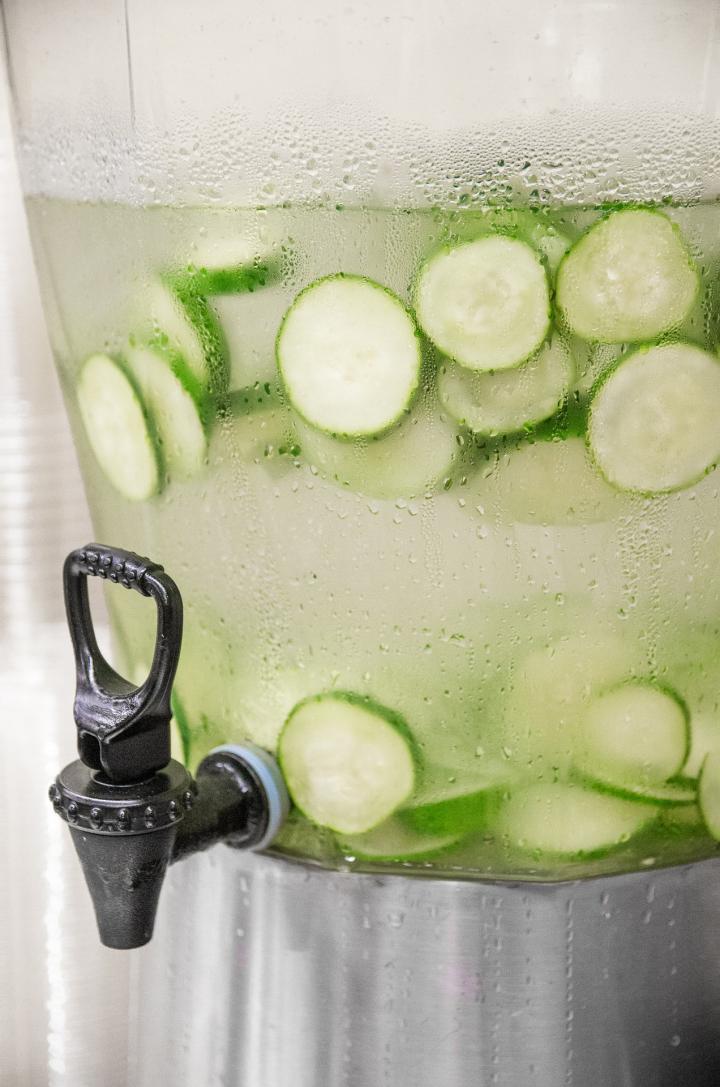
Although medical science hasn’t advanced to the point where care providers can recommend cucumbers to treat serious conditions, you might grab a cuke for one of these tried-and-true home remedies for minor problems:
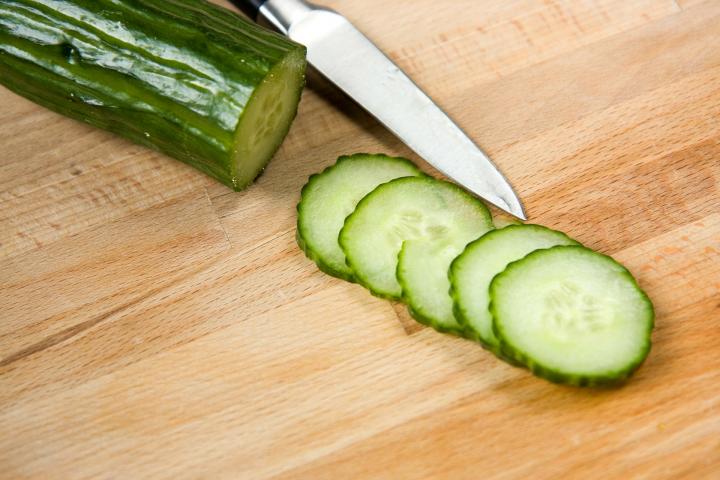
Check out our Cucumber Growing Guide for tips on how to grow fresh cucumbers in your own backyard.
How do you take advantage of the health benefits of cucumbers? Let us know in the comments section below!
~ By Margaret BoylesMargaret Boyles lives in a wood-heated house in central New Hampshire. She grows vegetables, keeps chickens, swims in a backyard pond in summer, snowshoes in the surrounding woods in winter, and commutes by bike whenever possible.
Copyright © www.100flowers.win Botanic Garden All Rights Reserved